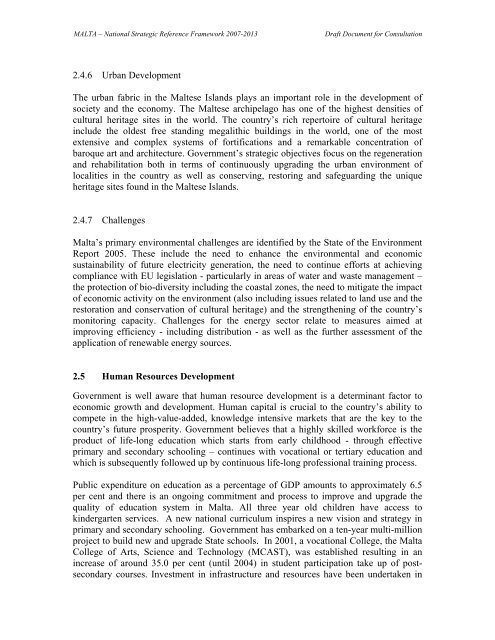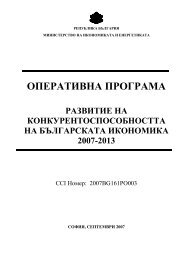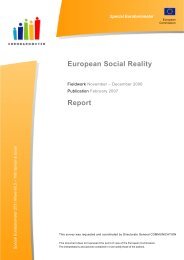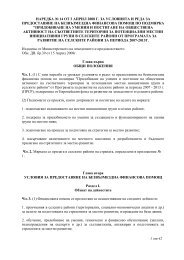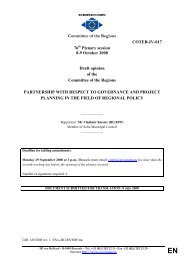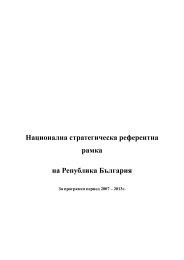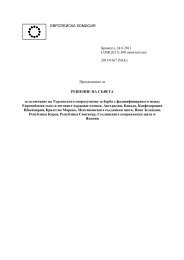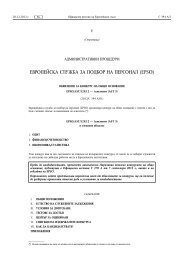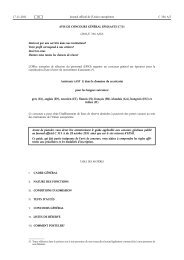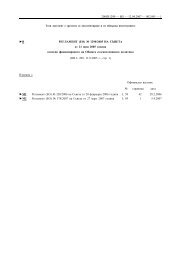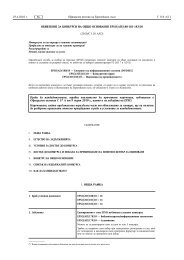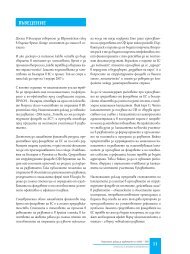National Strategic Reference Framework
National Strategic Reference Framework
National Strategic Reference Framework
Create successful ePaper yourself
Turn your PDF publications into a flip-book with our unique Google optimized e-Paper software.
MALTA – <strong>National</strong> <strong>Strategic</strong> <strong>Reference</strong> <strong>Framework</strong> 2007-2013 Draft Document for Consultation<br />
2.4.6 Urban Development<br />
The urban fabric in the Maltese Islands plays an important role in the development of<br />
society and the economy. The Maltese archipelago has one of the highest densities of<br />
cultural heritage sites in the world. The country’s rich repertoire of cultural heritage<br />
include the oldest free standing megalithic buildings in the world, one of the most<br />
extensive and complex systems of fortifications and a remarkable concentration of<br />
baroque art and architecture. Government’s strategic objectives focus on the regeneration<br />
and rehabilitation both in terms of continuously upgrading the urban environment of<br />
localities in the country as well as conserving, restoring and safeguarding the unique<br />
heritage sites found in the Maltese Islands.<br />
2.4.7 Challenges<br />
Malta’s primary environmental challenges are identified by the State of the Environment<br />
Report 2005. These include the need to enhance the environmental and economic<br />
sustainability of future electricity generation, the need to continue efforts at achieving<br />
compliance with EU legislation - particularly in areas of water and waste management –<br />
the protection of bio-diversity including the coastal zones, the need to mitigate the impact<br />
of economic activity on the environment (also including issues related to land use and the<br />
restoration and conservation of cultural heritage) and the strengthening of the country’s<br />
monitoring capacity. Challenges for the energy sector relate to measures aimed at<br />
improving efficiency - including distribution - as well as the further assessment of the<br />
application of renewable energy sources.<br />
2.5 Human Resources Development<br />
Government is well aware that human resource development is a determinant factor to<br />
economic growth and development. Human capital is crucial to the country’s ability to<br />
compete in the high-value-added, knowledge intensive markets that are the key to the<br />
country’s future prosperity. Government believes that a highly skilled workforce is the<br />
product of life-long education which starts from early childhood - through effective<br />
primary and secondary schooling – continues with vocational or tertiary education and<br />
which is subsequently followed up by continuous life-long professional training process.<br />
Public expenditure on education as a percentage of GDP amounts to approximately 6.5<br />
per cent and there is an ongoing commitment and process to improve and upgrade the<br />
quality of education system in Malta. All three year old children have access to<br />
kindergarten services. A new national curriculum inspires a new vision and strategy in<br />
primary and secondary schooling. Government has embarked on a ten-year multi-million<br />
project to build new and upgrade State schools. In 2001, a vocational College, the Malta<br />
College of Arts, Science and Technology (MCAST), was established resulting in an<br />
increase of around 35.0 per cent (until 2004) in student participation take up of postsecondary<br />
courses. Investment in infrastructure and resources have been undertaken in


